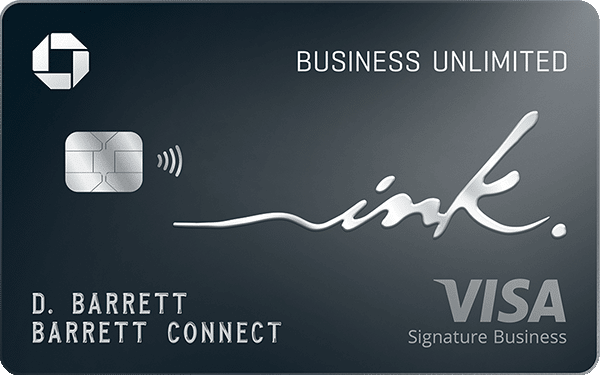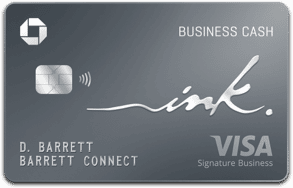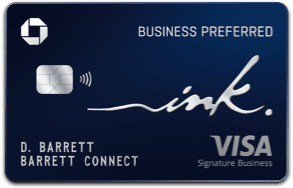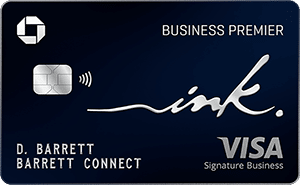Most products on this page are from partners who may compensate us. This may influence which products we write about and where and how they appear on the page. However, opinions expressed here are the author's alone, not those of any bank, credit card issuer, airline or hotel chain.
Everyday people dream of starting their own successful business all the time, and millions of entrepreneurs fill out applications to create new companies in the United States every year. Starting a business does come with challenges, however, and they don't all succeed. But when you have the right plan in place, you may be able to take your ambitions and turn them into something real.
Steps to starting a business:
- Define why you want to start a business
- Do market research
- Create a business plan
- Choose a business name
- Pick a structure and register your business
- Apply for a tax ID
- Separate your business and personal finances
- Continue to learn and adapt
This step-by-step guide provides valuable advice on how to get your small business plans out of the starting gate. Read on to dig deeper into the eight steps that could help you start a business.
Compare Chase Ink Business Credit Cards
| Credit Card | Intro Bonus | Annual Fee | Rewards Rate | Learn More |
|---|---|---|---|---|
|
|
$750Cash Bonus
Earn $750 bonus cash back after you spend $6,000 on purchases in the first 3 months from account opening |
$0 |
1.5%Cashback
Earn unlimited 1.5% cash back on every purchase made for your business. The advertised rewards type is cash back, but it’s important to note that you’re technically earning Chase Ultimate Rewards points (which can then be converted to cash back). |
Apply Now |
|
|
$750Cash Bonus
Earn $350 when you spend $3,000 on purchases in the first three months and an additional $400 when you spend $6,000 on purchases in the first six months after account opening |
$0 |
1% - 5%Cashback
Earn 5% cash back on your first $25,000 spent in combined purchases at office supply stores and on internet, cable and phone services each account anniversary year. It also offers you 2% cash back on your first $25,000 spent in combined purchases at gas stations and restaurants each account anniversary year. |
Apply Now |
|
|
120,000Chase Ultimate Rewards Points
Earn 120,000 bonus points after you spend $8,000 on purchases in the first 3 months from account opening. Dollar Equivalent: $2,760 (120,000 Chase Ultimate Rewards Points * 0.023 base) |
$95
This fee includes extra cards for authorized users, such as employees, at no additional charge. |
1x - 3xPoints
Earn 3x points on the first $150,000 of combined spending in a number of key business categories |
Apply Now |
|
|
$1,000Cash Bonus
Earn $1,000 bonus cash back after you spend $10,000 on purchases in the first 3 months from account opening. |
$195 |
Up to 2.5%Cashback
Earn unlimited 2.5% total cash back on purchases of $5,000 or more and unlimited 2% cash back on all other business purchases. |
Apply Now |
1. Define Your "Why"

Having a business idea can be great, especially if it’s something you're passionate about. Many successful businesses begin with a good idea. Yet an idea alone isn’t enough to start a business—at least not a successful one. Instead, you need to take action to turn your idea into something more.
First, define why you want to be in business for yourself and what problem or need your company will aim to solve for customers.
Here are a couple examples:
- You've love tech since childhood and now work as a coder: You might be inspired to start a coding school to help kids gain skills they might not learn in a traditional classroom.
- You're an animal lover who lost a family pet due to the pet's lack of training: You might be interested in starting a training facility where families can take their dogs for obedience school. Or perhaps you want to start by creating DIY training tools anyone can purchase online.
 Related Article
Related Article
How to Earn $400 With Chase Business Complete Checking
2. Do Market Research
Understanding what you want to do and whether there’s a need for your product or service matters. It's also critical to figure out whether other companies are already fulfilling the need your new business aims to serve. In other words, you need to do market research. The analysis you conduct during this stage may also help you narrow down and choose a more specific type of customer or audience (your target market).
For example, instead of creating a general marketing agency that's a one-stop shop for every small business owner in your area, you might try a different approach. You could offer social media management services to businesses within a specific industry that are looking to grow a target audience and increase brand awareness in their space.
Quick Tip
The U.S. Small Business Administration provides many free resources you can use to find information on various industries, consumers, potential customers and more.
3. Write a Business Plan

A solid business plan can be instrumental in the success of your new business. It can help you determine how much capital you need to raise or borrow as a new start-up company, whether you plan to take on investors (and how to attract them), and how you intend to structure your company.
A thorough business plan may contain many details, including (but not limited to) the following:
- An executive summary explains the goals of the company and how you plan to achieve them. This section may also include the mission statement of your business.
- The organization and structure of your business section should have details regarding the type of business entity you're forming and who will be running it. Consider using an organizational flow chart to illustrate who's in charge and highlight their skills and credentials.
- The products and services your business will offer should also appear in your business plan. Include how these products and services compare to what the competition offers and how your business intends to outperform others.
- A financial plan details the budget you intend to follow, projected financial statements (e.g., income statement, balance sheet and cash flow), and more. If you're seeking funding for your business (such as a business loan or line of credit), you would typically include that information here as well.
- A marketing plan should have information about how you plan to reach your target customer with details about your products and services. Also include a projected marketing budget that estimates how much you anticipate to spend.
The Small Business Administration also offers free resources online to help entrepreneurs develop their business plans. You may also be able to connect with a free business counselor to see if you're eligible for one-on-one guidance. Special business plan guidance may be available to minority-owned businesses and women-owned businesses as well.
4. Choose a Business Name
Selecting the right name for your business might not be as easy as it seems on the surface. Here are some key details to consider during the business naming process:
- Does another business already share the same name? If the company name you choose is already registered in your state or trademarked, you'll need to come up with an alternative.
- Is the name memorable and attractive from a marketing standpoint?
- Is the domain name available?
5. Pick a Structure and Register Your Business
Next, you'll need to choose how you want to set up your business entity. The legal structure of your business can be one of several options, including:
- Limited liability company (LLC)
- Corporation (C corporation or S corporation)
- Sole proprietorship
The type of business structure you choose can impact you in several ways as a small business owner—from how you pay taxes to your personal level of liability. It's wise to discuss your options with a reputable small business tax professional and an attorney before you decide on your business structure and register with your state.
6. Apply for a Federal Tax ID
Once you register your business, you'll want to request an employer identification number (EIN) from the Internal Revenue Service (IRS). It's important to set up an EIN for your business because you'll need this information to file business tax returns, open a business bank account and more.
The IRS does not charge business owners to apply for EINs. However, if you use a third-party service to handle the application process on your behalf, you may incur some fees. Note that if you complete your EIN application online with the IRS, you may receive your business tax ID number within a few minutes or less (assuming you're eligible).
7. Separate Business and Personal Finances

By maintaining a clear division between your business and personal funds, it should be easier to manage your tax obligations, track tax deductions and expenses, and hopefully protect yourself from personal liability in business-related matters.
Business Bank Accounts
Be sure to establish a business bank account for your company. You may want to consider opening both a business checking account and a business savings account to give your company multiple money-management solutions.
You can even find small business bank bonuses that are easy to earn and potentially give your company a little extra spending money in the process.
 Related Article
Related Article
5 Best Business Bank Account Bonuses and Promotions (2024)
Small Business Credit Cards
Another potential way to maintain separation between your personal and company funds is to apply for a small business credit card. Small business credit cards can give your company the potential to build business credit. Plus, the credit line may provide cash flow flexibility or help your company solve some short-term financing challenges.
Quick Tip
Even if you’re a freelancer, sole proprietor or self-employed you might be eligible to open a small business credit card. You might even be able to earn valuable rewards on your everyday business purchases.
Best Business Credit Cards
Visit the Marketplace
8. Continue to Learn and Seek Advice
Once you officially open your business, it's easy to get tied up with day-to-day tasks and responsibilities. Yet it's important to make a commitment to continuing your education where business management and growth is concerned.
Remember, it's okay to seek advice from other entrepreneurs and trusted experts when you come up against problems you can't figure out on your own.




















